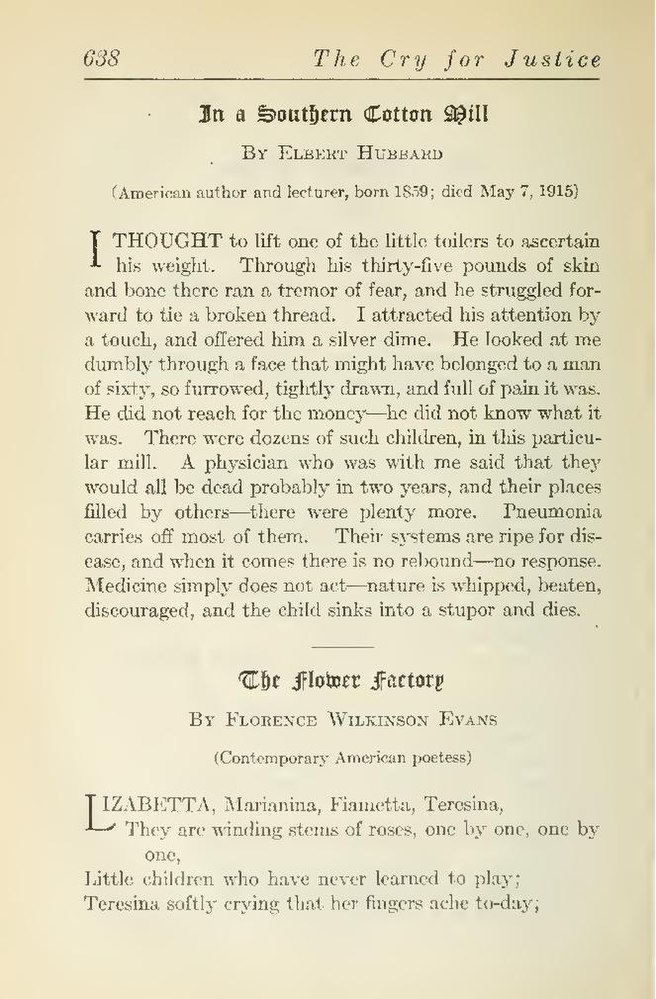In a Southern Cotton Mill
By Elbert Hubbard
(American author and lecturer, born 1859; died May 7, 1915)
I thought to lift one of the little toilers to ascertain his weight. Through his thirty-five pounds of skin and bone there ran a tremor of fear, and he struggled forward to tie a broken thread. I attracted his attention by a touch, and offered him a silver dime. He looked at me dumbly through a face that might have belonged to a man of sixty, so furrowed, tightly drawn, and full of pain it was. He did not reach for the money—he did not know what it was. There were dozens of such children, in this particular mill. A physician who was with me said that they would all be dead probably in two years, and their places filled by others—there were plenty more. Pneumonia carries off most of them. Their systems are ripe for disease, and when it comes there is no rebound—no response. Medicine simply does not act—nature is whipped, beaten, discouraged, and the child sinks into a stupor and dies.
The Flower Factory
By Florence Wilkinson Evans
(Contemporary American poetess)
Lizabetta, Marianina, Fiametta, Teresina,
They are winding stems of roses, one by one, one by one,
Little children who have never learned to play;
Teresina softly crying that her fingers ache to-day;
